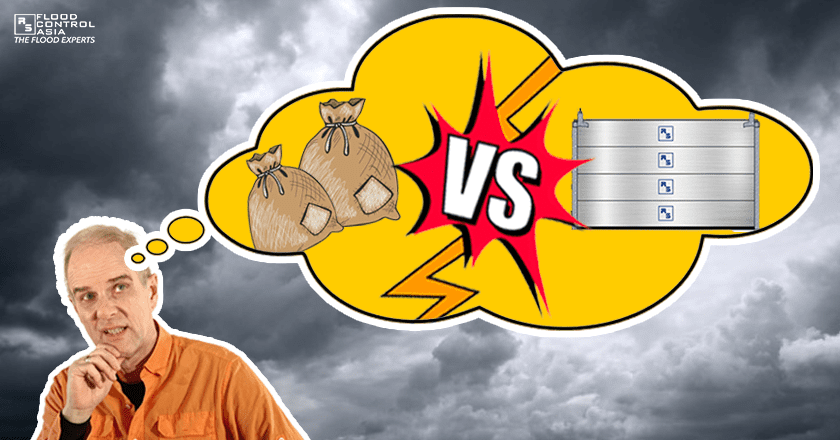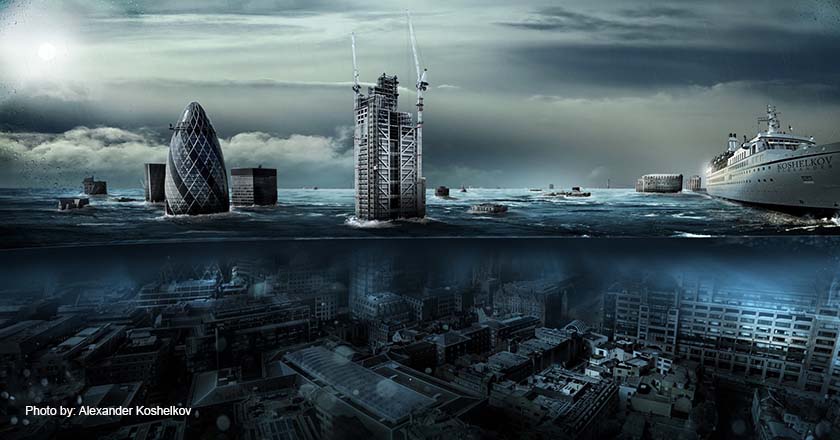Climate Change Alarmism
January 6, 2020 | Created by: Andreas Klippe | Comments
The media plays an interesting role in our everyday lives. The information from the television, radio, newspapers, and the internet shape our view of the world. This new knowledge becomes the basis of our future actions and how we deal with the consequences. This is why people want and need the correct information; why we select our sources of information based on trustworthiness and reliability.

Sadly, many sources play to our fears; and whether we admit it or not, it robs us of our ability to approach the issue objectively. News about climate change is not immune to this either. A lot of the news we get about it frequently tell us that our years on earth are numbered, enumerating the many ways we could perish in the worsening weather. Why does climate change news need to be frightening?
Fighting Against Alarmism & Denial
Now, for some perspective, this is an issue climate change deniers literally use against scientists, journalists, institutions, and anyone who recognizes climate change as fact based on scientific evidence. Climate change advocates are being insultingly called “alarmists”; boogiemen out to cause panic and fear and that the effects of climate change are exaggerated.
Alarmism is nothing new and isn’t just applied to climate change. Fear is and has been an effective tool to impel action. Fear is primal, and the human sense of self-preservation is a great motivator. But, we can fight fear with knowledge.
Don’t let yourself be tricked or betrayed. Don’t feel guilty either as anyone can also be fooled, deliberately or not. When it comes to climate change, distinguishing disinformation can be learned and here are some steps we’d like to share with you. Take note that these are not all of the ways of detecting disinformation and there are many others.
Check Sources and Supporting Facts
Check out our previous article on whether typhoons are slowing down. A scientist made his study public, while another scientist reviewed the data. This led to an opposing conclusion, with the dissenting scientist giving information on what could have been wrong. None of the scientists had to take it personal, and both agreed that there is much more to be learned and studied.

By researching, confirming sources, and checking for supporting data, we are able to confirm the true context of information given to us. Even a quick internet search on the subject helps us gain a better view of the issue.
Check the Date
Share buttons have not been this powerful in the history of the internet. With one click, we are given the opportunity to spread information to our circles. Sharing information is great, but not when we are sharing wrong or malicious information.

Like a cold, wrong information can spread if just one person shares it; then it moves to the next person, and the next, etc. And sometimes, we can get too excited with the share button. Looking at the date when the article was published is one of the quickest ways to see if the information is reliable. Scientific information is frequently updated or disproved. Check the date before clicking that share button.
Check Yourself
Our own biases and prejudices can also trick us. Going in on an article with our minds already made up limits our receptiveness to new information. Choosing to read or only choosing to remember the facts that confirm your beliefs is an example of confirmation bias.

Reading news articles should be an exercise in open mindedness. Feel free to read an article, but check your biases afterwards and evaluate.
Could it be a Joke?
Satire sites are a regular source of entertainment, it lightens the mood and helps us laugh at ourselves. Satire brings current events and issues to the spotlight through humor, pushing them to their most outrageous and highlighting the ridiculous.

Unfortunately, sometimes people don’t get the joke and let their outrage get the better of them. Don’t let yourself be one of them, check the URL and check what the website is about. You might be on a satirical or humorous website.
Knowledge is Power
Climate change, if it is continued to be ignored, is a threat not just to humans but to all living species on the planet. The planet will no doubt still be there if humans perish. Acting on climate change is a win-win situation. Even if with the very small possibility that climate change is not real, if we successfully change our energy sources into renewables and cultivate a culture of sustainability. We are undoubtedly become a society that values the planet and discourages unneeded waste and consumerism.

There may be a lot of scary news about climate change, but always check the facts. If something you read is presenting something troubling or has got you concerned, don’t panic. Fact checking is easier than ever.
Free yourself from the spectre of fear by fact checking. Be vigilant. For more articles and updated info, sign up for the Flood Control Asia RS newsletter or give our social media pages a like on Facebook and Youtube.






